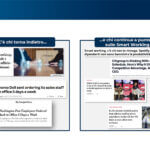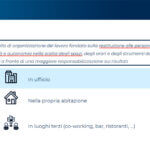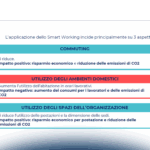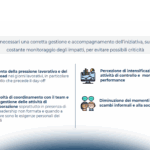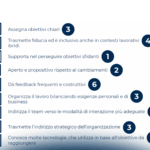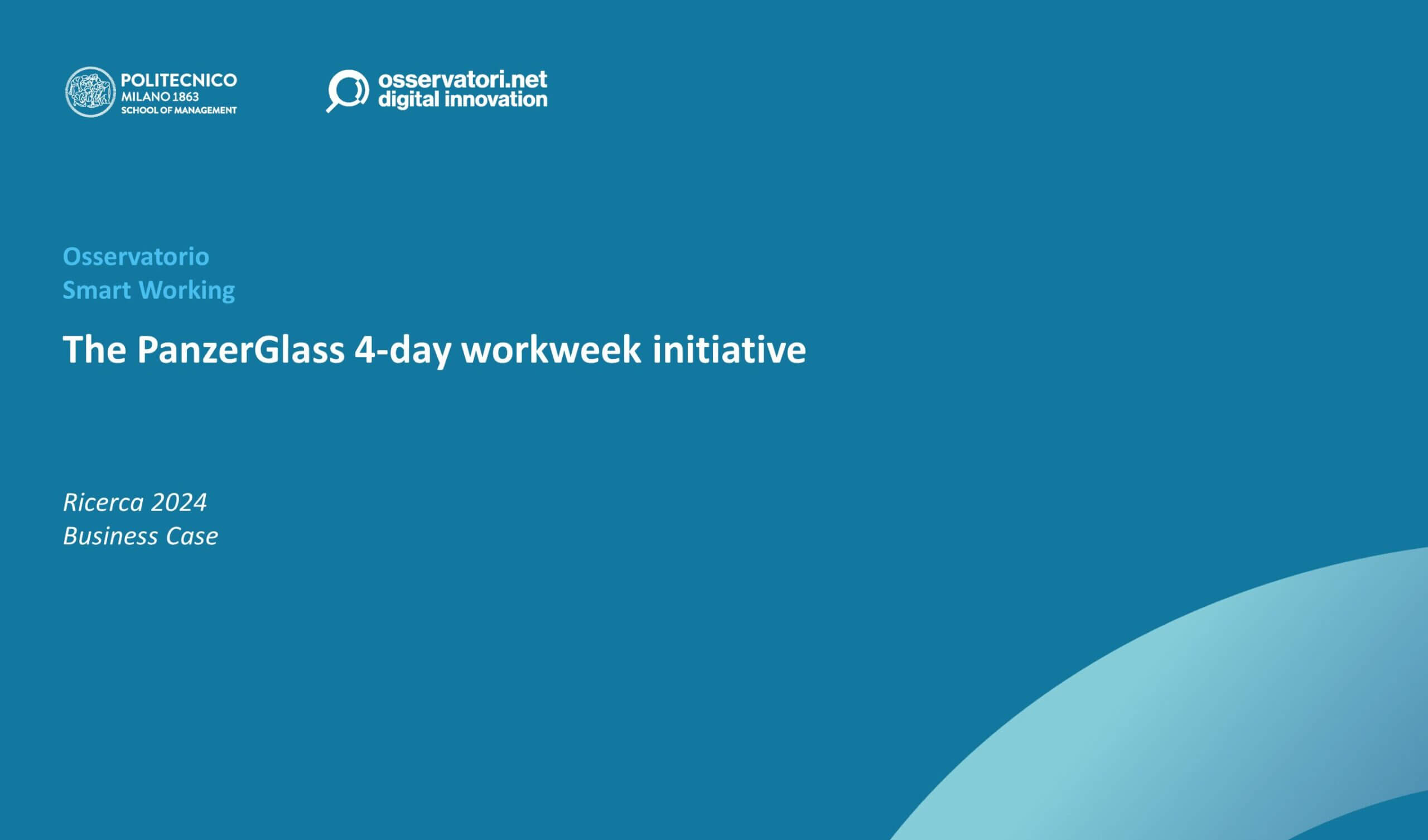The PanzerGlass 4-day workweek initiative
The company
PanzerGlass is a Danish company and part of the family-owned Juhl Bach Holding group. It is recognized internationally as a provider of screen protectors for various devices. Founded in 2013 as a start-up, PanzerGlass has grown into a global brand, established in 30 countries across five continents, with approximately 200 employees.
The needs
The effects of the pandemic have set new and complex challenges for organizations, intensifying competition in the labour market. Rising prices and wage adjustments due to inflation are pushing the Economy into a spiral many organizations find difficult to manage, leading to higher turnover rates. In this challenging scenario, PanzerGlass has faced difficulties in attracting and hiring qualified people in Denmark and internationally while also struggling to retain highly skilled employees. Furthermore, the company has from the very beginning made employee well-being and work-life balance a priority, viewing these factors as crucial for maintaining efficiency, work performance, and productivity.
The solution
To face these challenges and allow employees to manage their work-life balance more autonomously and effectively, PanzerGlass introduced the 4-day workweek.
The company sought to create a solution that was inclusive and aligned with the diverse needs of its employees, who have various profiles and life circumstances. To ensure this, the initiative was designed and reviewed in collaboration with a steering committee composed of about 15 representatives of different “personas” within the company. This group discussed the potential impact of the 4-day workweek on various worker profiles, considering both the advantages and possible challenges.
Following this successful preliminary phase, the 4-day workweek trial was launched in 2022.
The overarching goal is to sustain efficiency, productivity, and performance, while promoting a healthy work-life balance. This approach grants employees more free time to spend with loved ones, pursue hobbies, or engage in new learning opportunities.
The model implemented is known as the 100-80-100: employees receive the first and third Friday of each month off, resulting in a 20% reduction in working hours during those weeks while maintaining full salaries and the same level of productivity – or higher.
The 4-day workweek is available to all employees, except a few customer facing functions, who are instead guaranteed either Fridays or Mondays off, still providing them with a three-day weekend.
The trial was launched simultaneously across the 30 countries where the company operates. It was announced through an engaging email from the CEO & Founder, reaffirming the company’s commitment to this new way of working. This communication was followed by live sessions and the activation of an anonymous chat to address and respond to employees’ questions and concerns.
Following the implementation of the 4-day workweek, employees are still allowed to take advantage of remote work – introduced during the pandemic, though less frequently than before, as the company places a high value on in-office social interactions. Additionally, they have the flexibility to work from any location, not just from home, as long as they remain focused on their responsibilities and actively participate in meetings.
To support the implementation of the 4-day workweek, PanzerGlass underwent a significant cultural shift, supported by technological investments. The company recognized the need to change traditional working methods to improve efficiency and sustain productivity while working 20% fewer hours twice a month. As a result, the company has refined its approach to scheduling, duration, and preparation for meetings, establishing predefined lengths and scheduling them more purposefully to avoid unnecessary gatherings. To enhance efficiency and effectiveness, meeting invitations now include an agenda and designate a moderator to ensure the agenda is followed. Note-taking has become unnecessary, as an AI system transcribes the discussions and summarizes key points and action items. Standard duration of meetings is now 25 or 50 minutes to ensure breaks between meetings. To reduce unnecessary pressure and save time, employees are encouraged to invite only those who are essential to the meeting. The same principle applies to email, where employees are asked to copy only those directly interested in the communication.
Another effective tool is the collective focus time where everyone in the same office works quietly and focused on specific tasks without being interrupted by others or interrupting others.
This extensive cultural change has been supported by training sessions designed to equip employees with the skills needed in the new work environment. To further facilitate the transition to a more flexible working model, the company organized workshops with leaders to guide them through the change management process.
Benefits, Challenges, and Impact of the Initiative
PanzerGlass has confirmed the positive impact of the 4-day workweek initiative, registering increased competitiveness and an improved ability to attract valuable candidates while reducing the time-to-hire significantly. The company has also witnessed a significant reduction in unwanted turnover: before implementing the 4-day workweek turnover was nearly 15%. It has since dropped to around 6%.
Additionally, the company has reported benefits in sick leaves rate, currently 0,7% – a figure significantly lower than the market standard in Denmark. Moreover, no employees have taken sick leave due to work-related stress since the launch of the project. Considering performance and employee engagement, the organization successfully maintained its productivity levels. According to the annual engagement survey in January 2024, 96% of employees rated PanzerGlass as a great place to work.
The implementation of these initiatives did not come without challenges. One major challenge was related to the “one size fits all” approach. Different roles and departments within the organization require different tools and training courses to perform their specific tasks effectively.
As the project was rolled out simultaneously across 30 countries, it encountered challenges related to cultural heterogeneity and the varying needs of employees in different regions. In some countries, employees questioned the intent behind the initiative, misinterpreting it as a way to address inefficiencies or as a cost-saving measure.
Lastly, the company faced resistance to change by some, experiencing firsthand how difficult it can be for some people to abandon old habits in favor of a new, more efficient, and effective way of working.
PanzerGlass addressed these challenges by actively promoting a goal-oriented culture within the organization. The key to implementing a successful solution? Stay realistic, work closely with employees, listen openly to their feedback, and be prepared to make adjustments along the way.
Future Flexibility Goals
PanzerGlass believes they are halfway through their project and now aim to implement all the necessary tools, with 2024 designated as their “implementation year.” The goal is to have the initiative fully implemented by the end of 2025 or early 2026, with the next step being the introduction of the Friday off each week.
Siamo a tua disposizione per informazioni e assistenza

Martina Vertemati
Acquisti e abbonamenti Da Lunedì al Venerdì, dalle 09 alle 18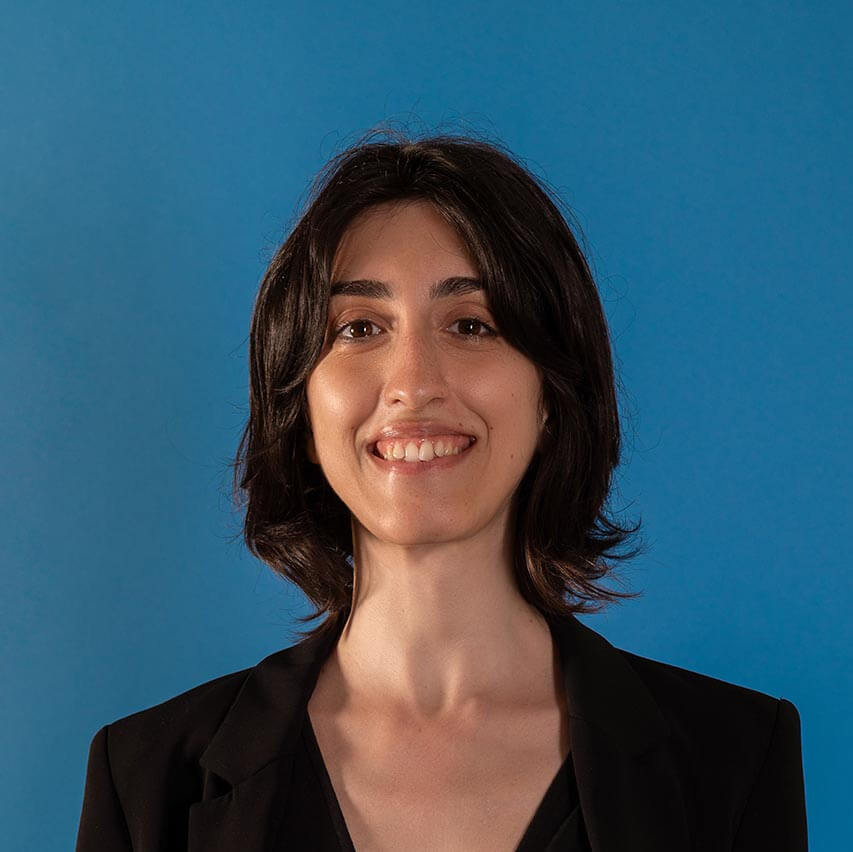
Alessia Barone
Assistenza Da Lunedì al Venerdì, dalle 09 alle 18Scopri altri contenuti di Smart Working
